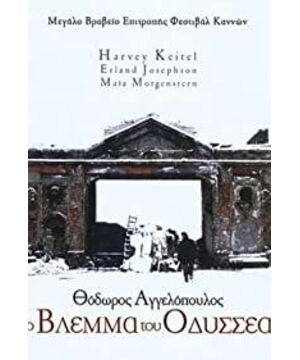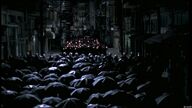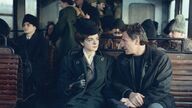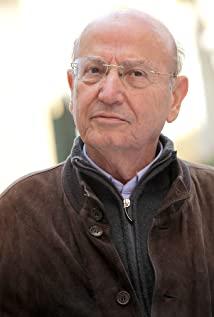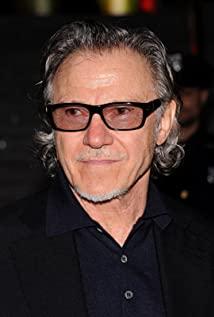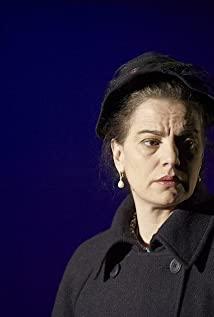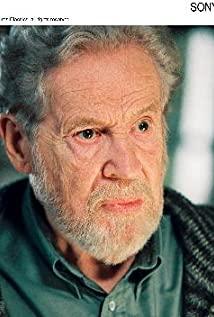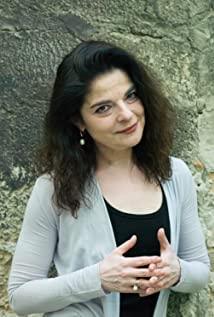This movie is like An Zhe’s early "Wandering Artist", the time on the surface is very complicated, so in order to understand the preparation of the movie, the timeline must be clarified.
Story
Manaki Brothers silent
beginning of the film director Theo Angelopoulos will review the father of Manaki brothers Balkan cinema a short film, short film describes the Balkan women's labor scene. After the film gradually entered the real world, an old man who had worked with Yanaki Manaki (the Manaki brother’s elder brother, who lived in Greece after World War II, and his younger brother Milton lived in Yugoslavia) told the protagonist of the film-a long-term The director living abroad, the Manaki brothers have three undeveloped films, which aroused his interest. The director was attracted by the three films and started a trip in the Balkans. In the film, since the protagonist does not have a name, we might as well call him "A" as he is called in the script. A came to a small town in Greece to participate in a film screening, but the film screening aroused dissatisfaction among the local Orthodox Christians. The local Orthodox Christians marched on the street with candles in their hands. In fact, he did not come here for this screening. He came here to find the traces of the Manaki brothers’ three rolls of film, but his colleague’s answer disappointed him, so he was going to today’s Beato in Macedonia. Pull (in the film uses the ancient name of the Ottoman period: Monastir. Milton Manaki died here) looking for clues in the film archives.
Albania
A took a taxi to the border between Greece and Albania, where he saw illegal immigrants who were deported, and an old woman who had been separated from his sister for nearly 50 years due to the war. She was about to go to Korca, Albania to find her. Sister, A let her get in a taxi. After entering Albania, Anzhe used a set of long shots to show the white and white snow scenery of Albania, the old brick buildings of the Communist Party period, and the crowds who went to Greece in the wind and snow. The old woman returned to Korca, but she has long been different. The only thing that can be connected with the old times is the chanting of the mosque. In the film, Albania's image to the audience is a deadly snow scene, lifeless, the whole Albania in the Balkans looks so pale and dilapidated, and so is the history here.
The taxi came near the border between Albania and Macedonia, where the taxi stopped because of the snow. Here, A and the taxi driver drink a bottle of wine to make friends. The taxi driver said to him: "Did you know? The Greeks are a dying nation..."
Macedonian
A came to Bitola in Macedonia ( The Manaki brothers’ memorial in Monastir tried to find clues related to the three rolls of film. After showing the purpose, he hoped that the staff here would help him contact the film archive in Skopje (the capital of Macedonia), where he I met a female clerk here, and he got on the train to Skopje with her. When arriving at the station, the female clerk told him that Skopje had nothing he was looking for, so A gave up the idea of getting off the train and took the train to Romania with the female clerk.
The Bulgarian
train came to the border between Macedonia and Bulgaria. A and the female staff had to get off the train because of passport issues. When they came to the border checkpoint, A knew that this was the place where Yanaki Ma-naki was sentenced, and the staff checked him At that time, time suddenly changed from modern times to World War I. A turned into Yanaki Manaki and was drawn into the interrogation room. Yanaki Manaki was first sentenced to death, but was later commuted to exile in Plovdiv (the Greek called Philippolis) ), and then time entered the modern era. Ulysses, who ended border inspection, crossed the border and continued his journey with the female staff.
Romania
The train entered the Bucharest station in Romania. A looked out the window. The scene outside the window returned to the end of World War II. At the end of 1944, he returned to A’s childhood. His mother was waiting for him on the platform, and then they went to Kang. Stanza's train. The camera came to Constanta, but it was already occupied by the Soviet Union. The singing of "Katyusha" can be heard everywhere, and people can also be seen holding red flags and marching. Socialism has begun to invade this land. A and his mother returned to their home-a villa, where their family held a dance party. The audience can understand A's childhood experience through this stream of consciousness. He was born in a middle-class family. After the Communist Party came to power, his family had to move abroad. His childhood was closely related to the historical changes in the Balkans.
After that, the camera gradually cut back to modern times. A bid farewell to Bitola's female staff and took a boat from Constanta to Belgrade, the capital of Serbia. The ship carried the disassembled stone statue of Lenin. A stands at the bow of the ship, behind which is the Lenin statue. In the Balkans, the Communist Party was broken like a statue of Lenin, but the era was as close as it could be reached by turning around. People on the Danube River kept drawing crosses on the statue of Lenin. This is a farewell to the old era, and the Communist era is drifting away like this.
From Serbia to Bosnia
A came to Belgrade, this Serbia was shrouded in the shadow of crisis, where he met a friend of his, from that friend he learned that the three rolls of Manaki brothers’ films were kept in Sarajevo, he He left Belgrade in a small boat, and headed towards Sarajevo along the Sava River and then along the Bosnia River.
At this time, the camera switched to the era of World War I. Yanaki Manaki was exiled to Plovdiv, and then rowed along the Evros River towards Greece with the help of a local Bulgarian woman. On the way, they came to the woman’s village. But the village was already in ruins, and women shouted for their relatives, but there was nothing but ruins. The woman put on Yanaki Manaki's deceased husband's clothes, she seemed to have met her deceased husband again, and fell on Yanaki Manaki's body.
In a blink of an eye, the lens cut to modern Sarajevo again. At that time, Bosnia was in a civil war, and Sarajevo was the focus of contention between the two sides of the civil war. He found Ivor Levy in the Sarajevo Film Archive. The three rolls of Manaki brothers’ films were kept with him. Since the Manaki brothers have not made them public, the potions used to wash these films are well known. Ivor Levy is looking for a formula for the potion. With Ivor Levy, he also fell in love with Naomi, the daughter of Ivor Levy. Ivor Levy prepared a film-washing potion and successfully developed these 3 rolls of film by the Manaki brothers. The city gradually became densely foggy. Li Wei said: “The foggy days are worth celebrating.” A and Li Wei’s family walked in the fog in Sarajevo, which was destroyed by the war, listening to the music played by the orchestra during the armistice. The young people performed "Romeo and Juliet" and went for a walk by the river together. But there was the sound of the car's engine in the distance. The movie was set on the dense fog. Then came the soldiers' rants, women's begging, crying, and gunshots. Li Wei's family was shot and killed in the fog...
outside the plot
This whole movie by An Zhe was shocking. The protagonist in this movie traveled almost throughout the Balkans, involving three eras that had a major influence on the Balkans: World War I, the end of World War II to the beginning of the Cold War, and the 1990s. There is also the group leader shot, and the almost chaotic time...It is
undeniable that the Manaki brothers are very important characters in the film. As the film said: "They (Manaki brothers) have no interest in politics and ethnicity... Interested in the people.” The Manaki brothers recorded the people and history of the Balkans. The Manaki brothers traveled around the Balkans, recording local customs. They are no longer a representative of a certain country, but a symbol of the entire Balkans. Their films are the history of the Balkans themselves, and those three unknown films carry the unknown history of the Balkans. A The journey of looking for film is a journey of tracing history. "If the soul wants to understand itself, it must stare at its own soul." A nation needs to understand itself and also stare at its own history. The Manaki brothers are witnesses to the history of the Balkans. The attraction of history makes A embark on a journey of searching for films-looking for forgotten history in the name of film.
Anzhe used some place names from the Manaki brothers’ era in the film. Anzhe confuses the past with the present. In this journey, time crosses each other, the times become blurred, time becomes less important, and A’s travel is not him. One person, A, the childhood A, and the Manaki brothers (all played by the same person) participated in this journey. The journey spans time and space. During the journey, A merges with the Manaki brothers and the history of the Balkans. A's journey is a journey of discovery and witness to the Balkans, and he should devote his whole life to complete it. Even the shadow of Odysseus can be found on his body. A travels non-stop, just like Odysseus, but unlike Odysseus, A's travel does not have an end.
There are three women in the trip—a female employee from Macedonia, a Bulgarian woman, and Naomi, the daughter of Ivor Levy (and of course the Greek woman in the rain). These three women can’t help but remind people of the 3 in Odysseus’s journey. An important woman. These three women are all played by the same actress, and many of the characters have the same faces. The history of the Balkans is like these faces, repeating the same content.
In the three eras in the film-World War I, the end of World War II to the beginning of the Cold War, and the wars of the 1990s, the war had a profound impact on the Balkans and changed the landscape of the Balkans. The taxi driver in the film once said to A: "Did you know? Greece is a nation that is about to die." Many times, the fate of the Balkans is tragic. The competition between the great powers makes the Balkans worry about themselves more deeply. To understand the desire of the Balkans.
An Zhe regards the entire Balkans as his hometown. The whole movie is full of deep homesickness, a kind of nostalgia that crosses countries, nations and times. Through A, he seeks the history of the Balkans, the common memories of the Balkans, and thinks. The future of the Balkans. To understand itself, a nation must first look at its own history.
Lens, stream of consciousness
Anzhe's long shot is very beautiful and very long (the scene of the family New Year's party even lasts 9 minutes), perhaps the deepest image after watching this movie is Sarajevo in the thick fog, and the thick fog conceals the war. It seems that people have forgotten the war; when Li Wei’s family was tragically killed, the camera was frozen on the dense fog, and the audience heard only sounds—gunshots, humming, and begging. Anzhe did not face the killing, but this This technique is more shocking than facing the killing.
There are also a lot of streams of consciousness in An Zhe's movie. In many places in the film, without switching the shots, the memories of A or the experiences of the Manaki brothers are immediately transferred. As I said before, the travel in the film is not just a journey of one person. The confusion of time makes the A and Manaki brothers better integrate, and the past and the present are also merged-this seems chaotic, but it is not chaotic. For example, after arriving in Romania, I entered a stream of consciousness that lasted more than 10 minutes. Here are A’s childhood memories. At that time, the Soviet Union had just influenced this place, and the Communist Party had just taken power; after returning to reality, A boarded a ship with a statue of Lenin. At this time, the Communist regime had already stepped down. A stream of consciousness and a period of reality are connected in this way, symbolizing the coming and leaving of the Communist regime.
The story does not end
the film the last sentence is: "It will be a never-ending story." This ends more than appeared in a movie in the Balkans, in Serbia Emir Kusturica's "Underground" Finally, play The subtitle of "Ova priča nema kraj" (this story will not end), in Macedonian director Manchevsky’s "Heavy Rain is Coming", the story is an endless loop that never ends (interestingly, these three movies They were all released around 1995). Kusturica’s film is an alternative thinking about history, Manchevsky shows the endless killing of the Balkans, and Anzhe’s film includes both of the above. The three movies can be said to record history, so it is necessary to write an unending story. The director has the responsibility to trace the history of the nation and the country through the film, and explore the future of the nation and the country. I think this is the biggest inspiration for us from "The Gaze of Ulysses" and other Balkan films.
View more about Ulysses' Gaze reviews


